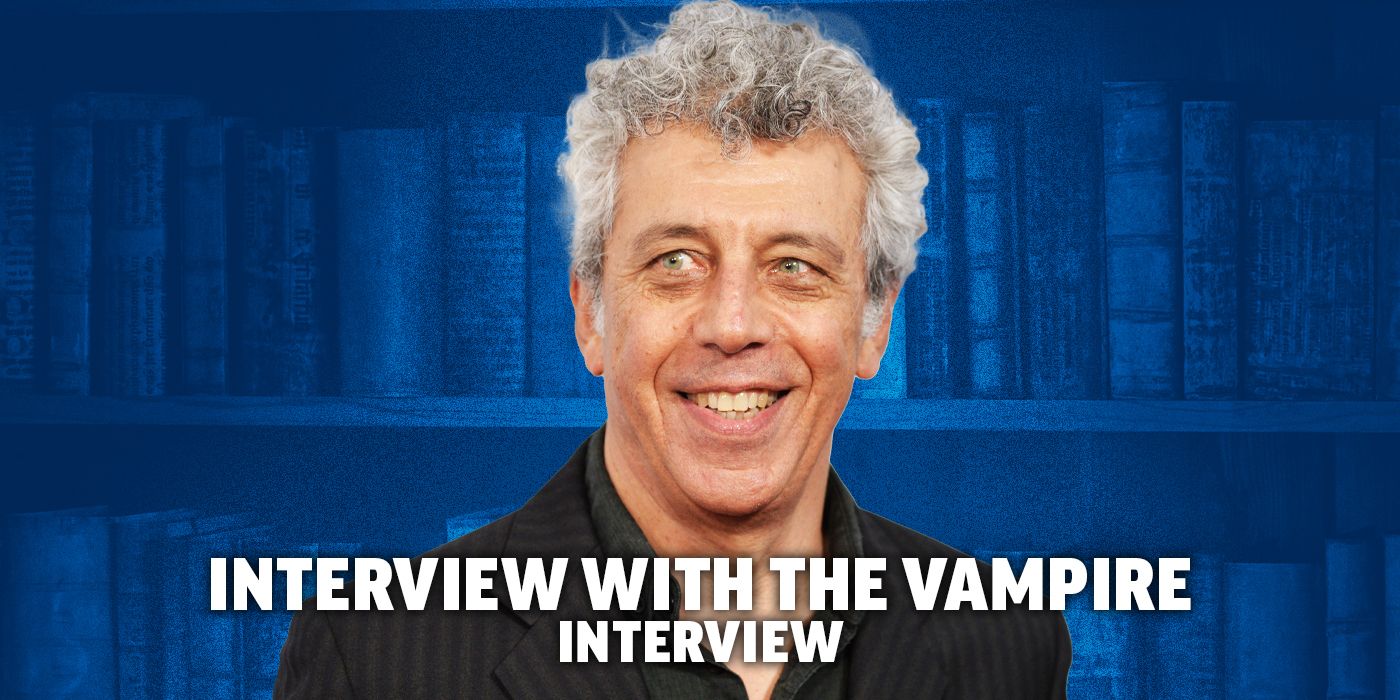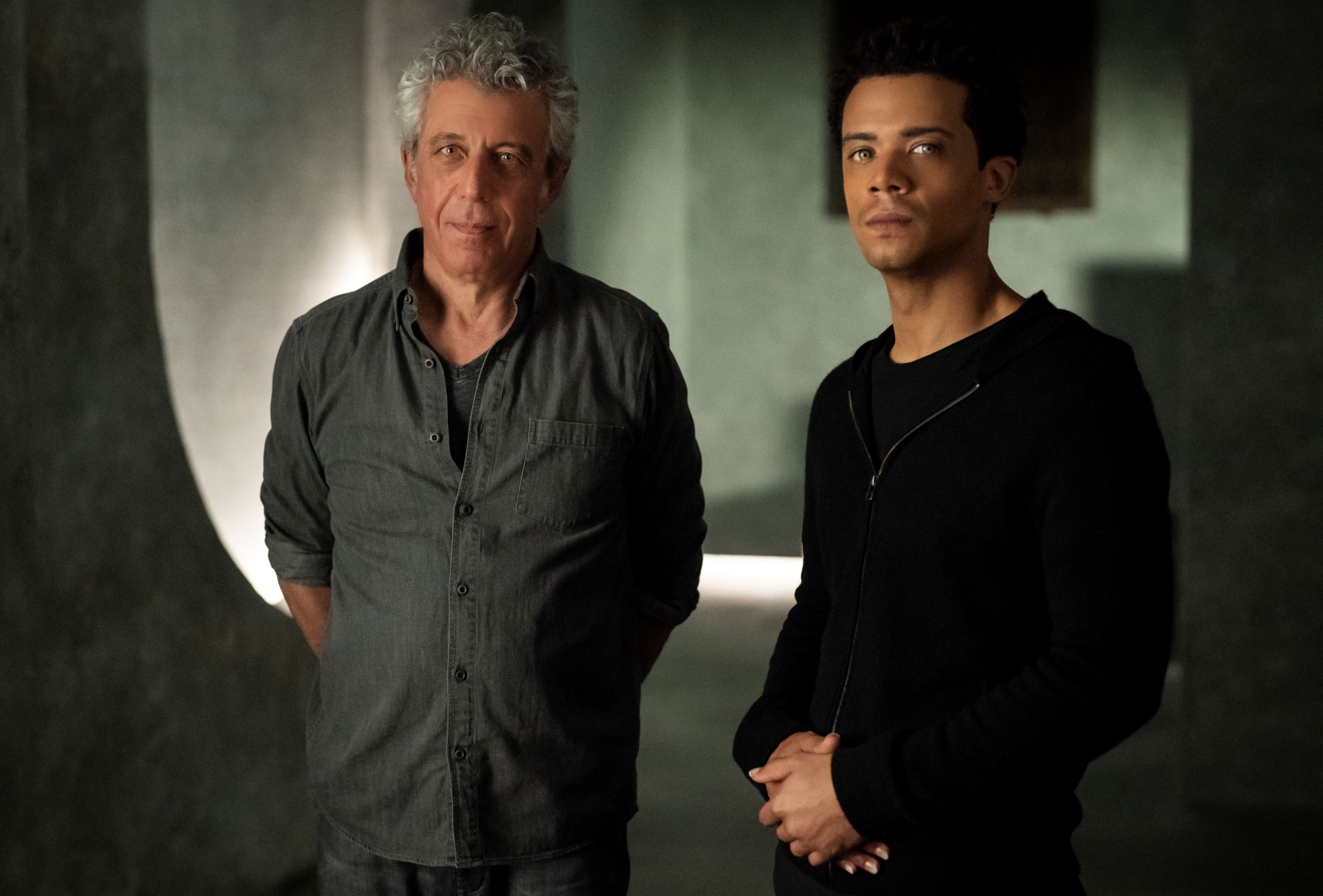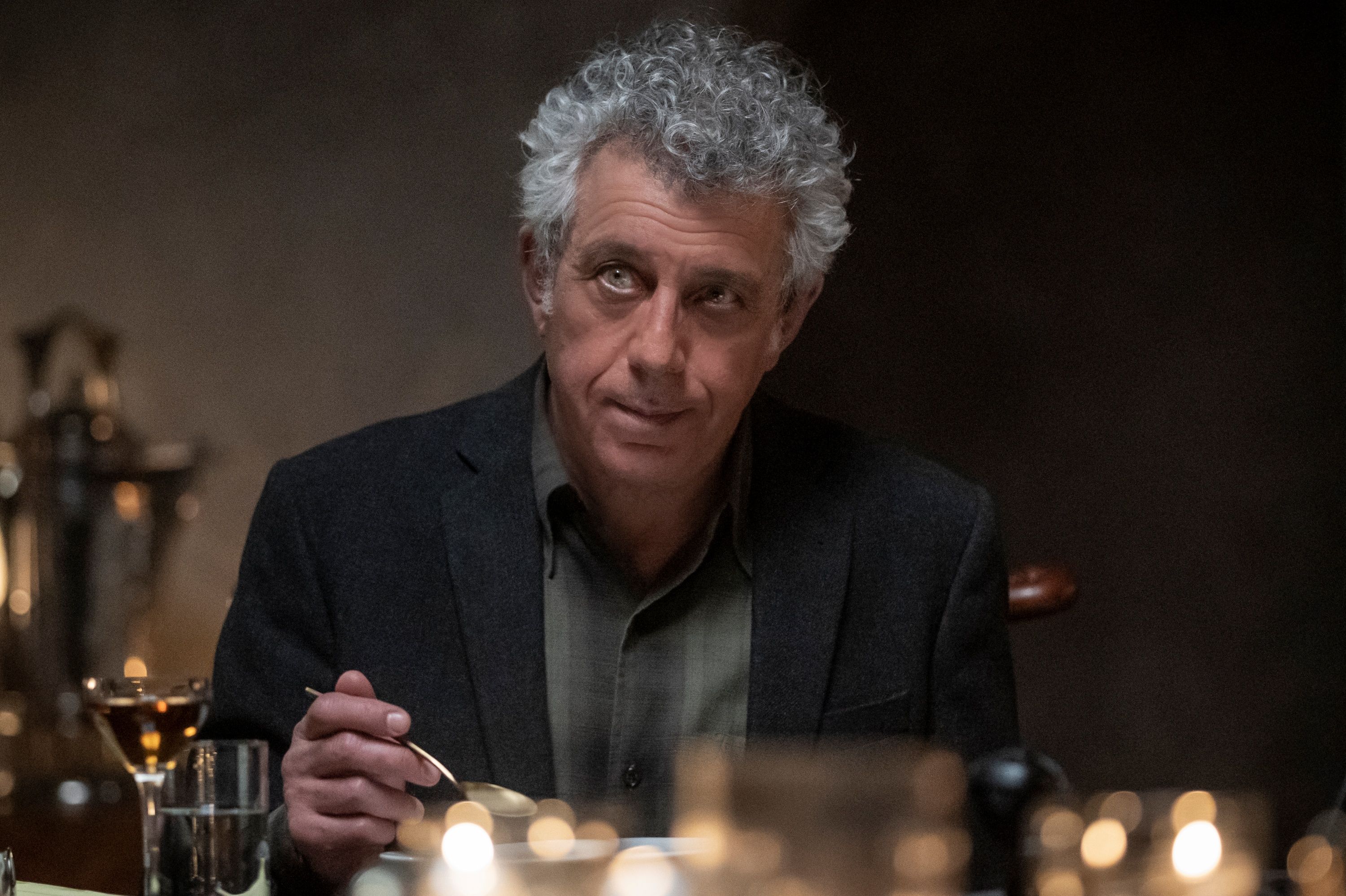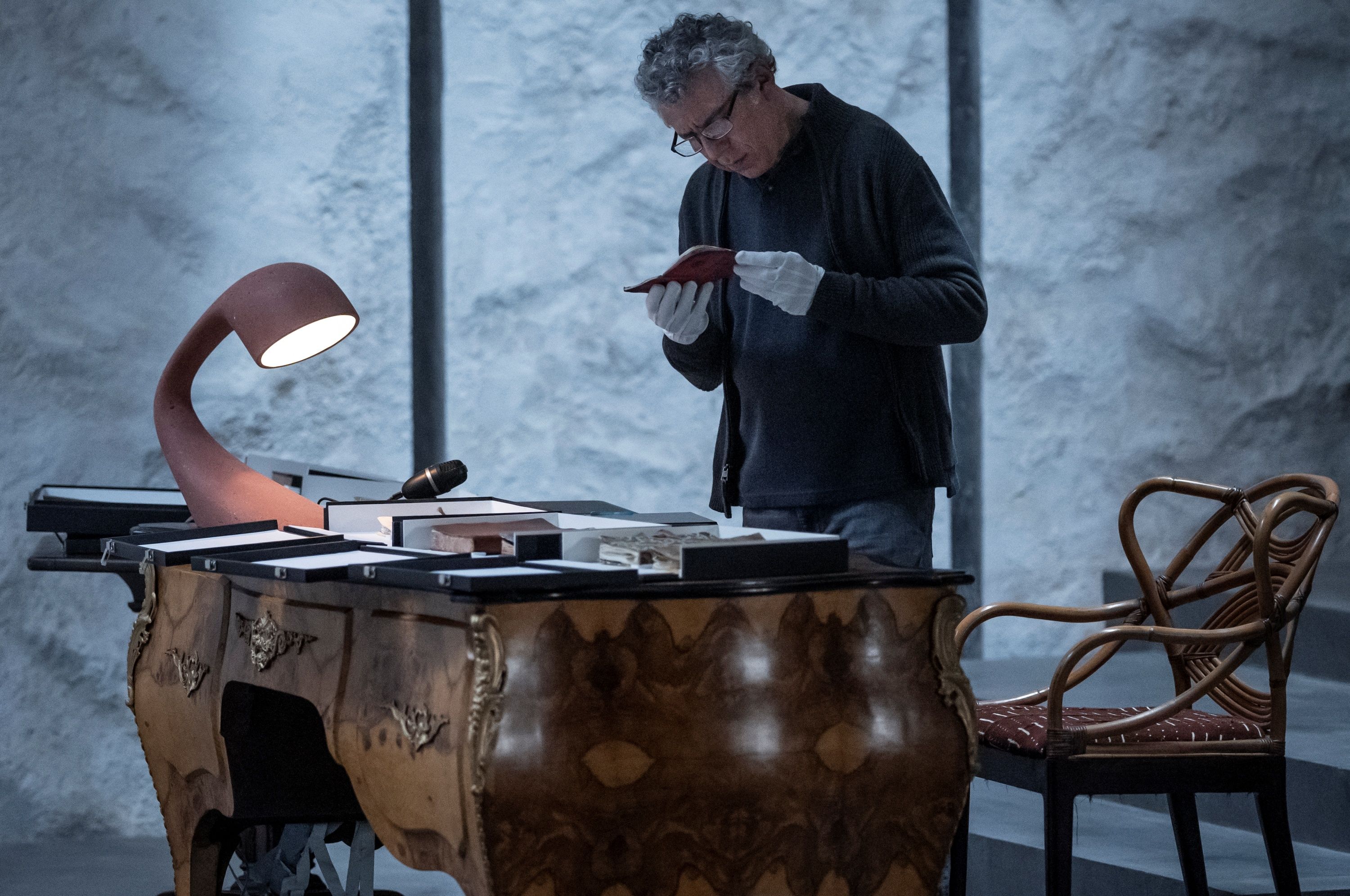[Editor’s note: The following contains some spoilers for Interview With the Vampire.]Anne Rice’s Interview With the Vampire, airing on AMC and available to stream at AMC+, tells a story of epic love that is at times poetic and decadent, but also cruel and lonely, in seemingly equal measure. As a Black man in 1900s New Orleans, Louis de Pointe du Lac (Jacob Anderson) dreamed of more than his position in society would allow, which made the offer of immortality presented to him by Lestat de Lioncourt (Sam Reid) impossible to resist, but being intoxicated by the man and the powers wasn’t enough to fill the pain of regret and desire for atonement that could haunt him forever.
During this 1-on-1 interview with Collider, Eric Bogosian (who plays Daniel Molloy, a veteran journalist that’s been trying to uncover the real Louis underneath what he allows him to see) talked about why he was so drawn to this project, having always wanted to play a vampire, how he identifies with his character, the dynamic between Daniel and Louis, what Daniel thinks of vampires, how his character’s Parkinson’s diagnosis shapes him, and the deep sense of humanity in the story.
Collider: I have to say that I was one of those people that was very skeptical when I started watching this, as I’m sure many people have been, and I was just blown away by the poetry of it all. It’s just so beautifully done. When the possibility of this came your way, what was your reaction? Did you wonder why? Were you intrigued and wanted to know more? When a project that’s revisiting something comes your way, do you tend to be more hesitant or more curious?
ERIC BOGOSIAN: It came in layers. The first layer came before I even got the offer and before I even knew this was happening, which was the day before I got the offer. I was thinking, “I really wanna do a vampire thing before I die.” And then, the next day, I got the phone call, which was pretty cool. I was staying in a small apartment, north of Chicago, with my wife because she was opening a play there, and the apartment had 14 Anne Rice books in it, on a very small bookshelf, so that was weird. And later, we would find out that the play my wife was directing by Eleanor Burgess, that Eleanor Burgess is one of the writers on this show, and Eleanor didn’t know that I was being offered this role. I have yet to meet Eleanor.
So, all these strange things were happening. And then, the offer came through. For me, it comes down to, “Let me see the script. I’ve gotta see the script.” And once I saw the script, I saw how complex and fascinating it was. I thought, “With Interview with the Vampire, this guy is just gonna be bookends.” I’ll come in and say, “Okay, tell me the story.” And then, I’ll be like, “That’s interesting,” at the end of that episode. But instead, it became this incredibly interwoven thing, and it continues to be that, all the way through the whole season.
The other question I have to ask, when I’m gonna be doing something that’s so dependent on me working with one person, is, "Who’s playing the other role?" I was like, “Who’s the vampire?” And when they said it was Jacob Anderson, I was like, “I love that guy.” I knew him from Game of Thrones. I watched his work as Grey Worm very carefully because it was very subtle, and I’m interested in what people do as actors. I didn’t know (show creator) Rolin [Jones] very well, but the writing spoke for itself. As you said, it was lyrical. I’ve been watching the show as it comes out, and it’s even more lyrical than I realized. It pays homage to Anne Rice. A lot of it is direct quotes from her writing.
I read Interview in ‘76, or whenever it came out, and I loved it then, so to dip myself back into it, I know a lot more about writing than I did when I was young. I’m an older guy now, so I read it differently. The way she controls atmosphere, the way she controls rhythm, the way she unravels a story, and the deep sexual pulse that’s underneath everything, is just wow. And I’ve always been a big vampire guy. I don’t think fan is the right word. My favorite monster stuff goes all the way back to Bela Lugosi in Dracula. But then, I saw Frank Langella do Dracula on Broadway also in the seventies, and it knocked me out, completely.
I always wanted and tried to get a Dracula going, but couldn’t get it going for me to play that role. I petitioned Francis Ford Coppola and even met him, to try to get into the Dracula that he did. The notion of vampire is much larger than just some monster thing. It speaks to very deep fears and emotions of being a human being. And even more so, as I get older, I’m at a place in my life where I’m looking at it like, how many more summers do I get? Ten? Fifteen? Twenty? Who knows? It seems like immortality is a hard concept to wrap your mind around. But the truth is that mortality is a really hard concept to wrap your mind around. Immortality, you can imagine, and that’s what this all is, of course. It’s an imagining of that.
I love that this is a Daniel who isn’t just enamored with and fascinated by Louis. He’s cynical enough to question everything he’s being told and that’s being presented to him. What do you enjoy about that interplay between the two of them? How much does he actually believe or trust anything that he’s being told?
BOGOSIAN: First of all, there are a lot of parallels between Daniel and myself, but the one where we diverge is that he is a top shelf journalist and he gets the story. I’ve been around these guys. I’m not one of them. They’re not going to let it rest until they get the whole story. And the way that has been laid out in this, the entire series is a great character thing for me to try to play. That’s always what I’m looking at, the challenge of playing the character, so I love the fact that he doesn’t let things rest. These men have a relationship that goes back a long time, and the push-pull goes back and forth between them. As Louis says in the first episode, “What were you doing in a gay bar, anyway, 40-something years ago?,” and Daniel throws it away. My own life was all over the place, when I was in my twenties. Those are questions I don’t even wanna talk about, whether it’s drugs or sexuality, or whatever. That’s the stuff that a young man is exploring. Louis says, “I knew you when you were young. There aren’t a lot of people left who knew you the way that I know you.” It’s crazy to have this guy suddenly show back up in Daniel’s life.
How do you think Daniel feels about the relationship between Louis and Lestat, as it’s described to him? We see him getting to know Claudia through her own words and her own writing with the journals, and we see how he feels about that in real time, as we’re watching it, but what does he think of Lestat?
BOGOSIAN: The relationship with Claudia is complex. In some ways, what you see is what you get. She’ll explain her predicament of being young forever. But when it comes to these two guys, I’m not buying everything that he’s saying, and that goes all the way through the whole season. It’s a really important part of the season, so I can only say so much about it right now. But his Spidey-sense, as a top journalist, senses that there’s more there and that Louis is never really telling it. It all goes back to that very first thing that Louis says in the first episode, which is basically, “I hated him and I loved him, at the same time. I was mesmerized by him.”
Having watched it now a few times, Daniel is not there with Lestat, but Sam [Reid] does have that magnetism. I get it. When I’m around Sam, I feel that way. I’m like, “Sure, whatever. Take me wherever you want to take me.” It’s the same for Jacob, as well. All those things that he’s saying when he’s looking at the camera, I’m looking at him and he’s hypnotizing me when we’re doing those scenes. Daniel has to fight the intoxication of being in this situation, so that he can get through all of this and get to the story. He’s thinking, “He may be saying this, but what’s he really telling me?” That’s his instinct as a journalist, just as your instinct is, right now, to make sure I don’t bullshit you. I’ve gotta get the story.
Would you say that Daniel is more frightened of vampires, or is he more intrigued and curious about vampires?
BOGOSIAN: That changes. You’ll see. That’s going to keep changing. I can only access my own emotional stuff. When I feel I’m being bullied, I just push further. I step into it. I think that’s very much the way that Daniel is. If he feels fear, he’s gonna shut down the fear and he’s gonna push into it. There is fear. Of course, there’s fear, but he has to keep getting the story, and he’s challenged. He’s challenged by this guy who he thinks might be bullshitting him, or at least not telling him the whole story. He knows he’s not telling him the whole story. Then, in the background, and this comes up right away and will keep coming up, he’s facing his own mortality. He’s just decided, “I’m going to compartmentalize that and put it over here.” But here it is, it’s on a platter in front of him, all the time. You could just say yes, and then you don’t have to think about any of that stuff anymore. That will come up, again and again, in the season.
How much did his Parkinson’s diagnosis shape your performance? Do you feel like that also makes him less willing to put up with the bullshit because he’s in a different head space?
BOGOSIAN: Yes, but also, anybody in their mid to late sixties is dealing with something, and those somethings are reminders, all the time, of your mortality. He tries to not think about the Parkinson’s, itself. Unfortunately, I know someone from my age slot who is going through this, so all I had to do was imitate what was going on. It’s like when you do an acting exercise, and you’re supposed to be threatening, so then you should smile in that scene, and it will be even more threatening. In the case of Parkinson’s, to show Parkinson’s, you have to keep trying to put Parkinson’s aside. You have to keep trying to ignore it. It was always there, but often, I could keep my hands steady, and it wouldn’t be as obvious. There’s a moment in the first episode, where I literally take my hand and hold it, and I’ve seen that done. It’s a challenge that I think people accommodate themselves to pretty quickly, and then it just becomes part of the bigger picture, which is the, “I’m not gonna be here forever,” kind of stuff.
I think that what you’re doing with Daniel is fascinating to watch, and I’m looking forward to seeing more of the relationship between these two men.
BOGOSIAN: Thank you. I didn’t expect this to be such a rich broth. It’s beyond my wildest dreams. It’s merging the Anne Rice and Rolin Jones mentalities on levels that I don’t think everybody has even picking up on. The whole way he deals with Paul, and the person Paul is. If you’ve been around anybody who’s challenged like that, you have moments of normalcy, and then you have moments that are really hard to control. I thought he nailed that. That’s a side topic, but it still runs through the whole show. Rolin has a very deep sense of humanity, which is essential to doing Anne Rice because that’s what she did. She showed us vampires who are human beings, and that’s pretty cool.
Interview with the Vampire airs on Sunday nights on AMC and is available to stream at AMC+.




